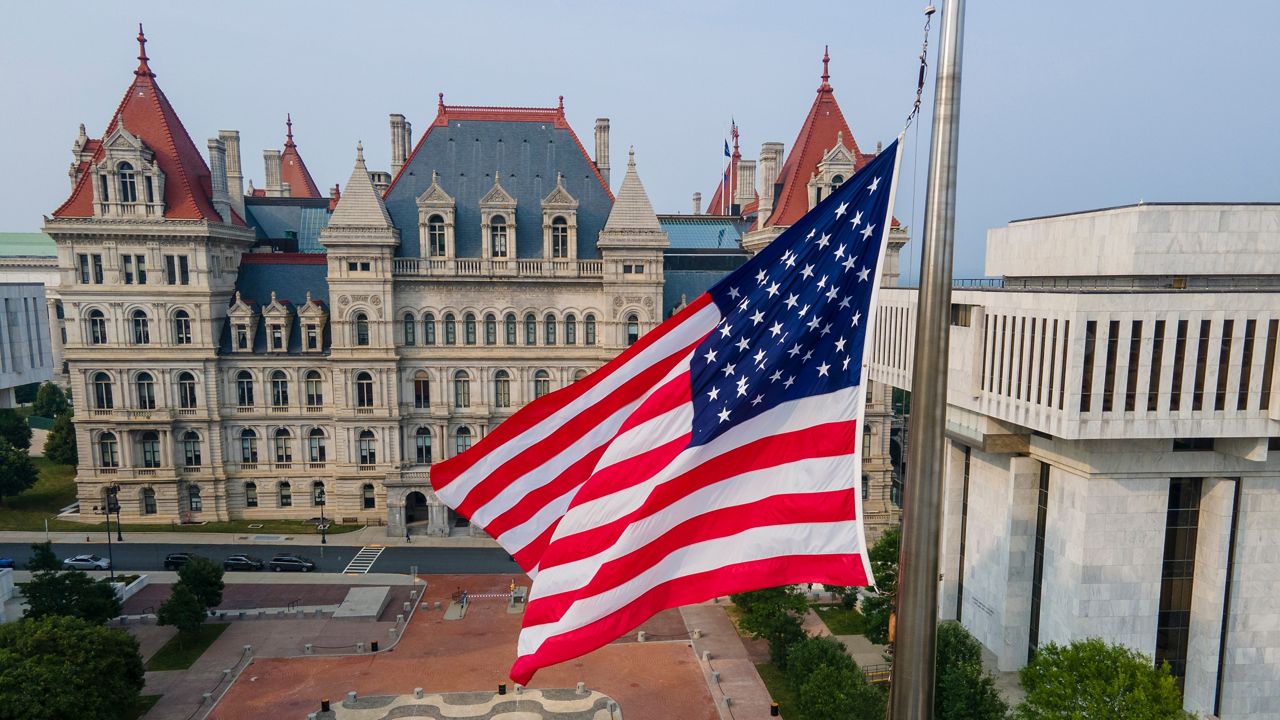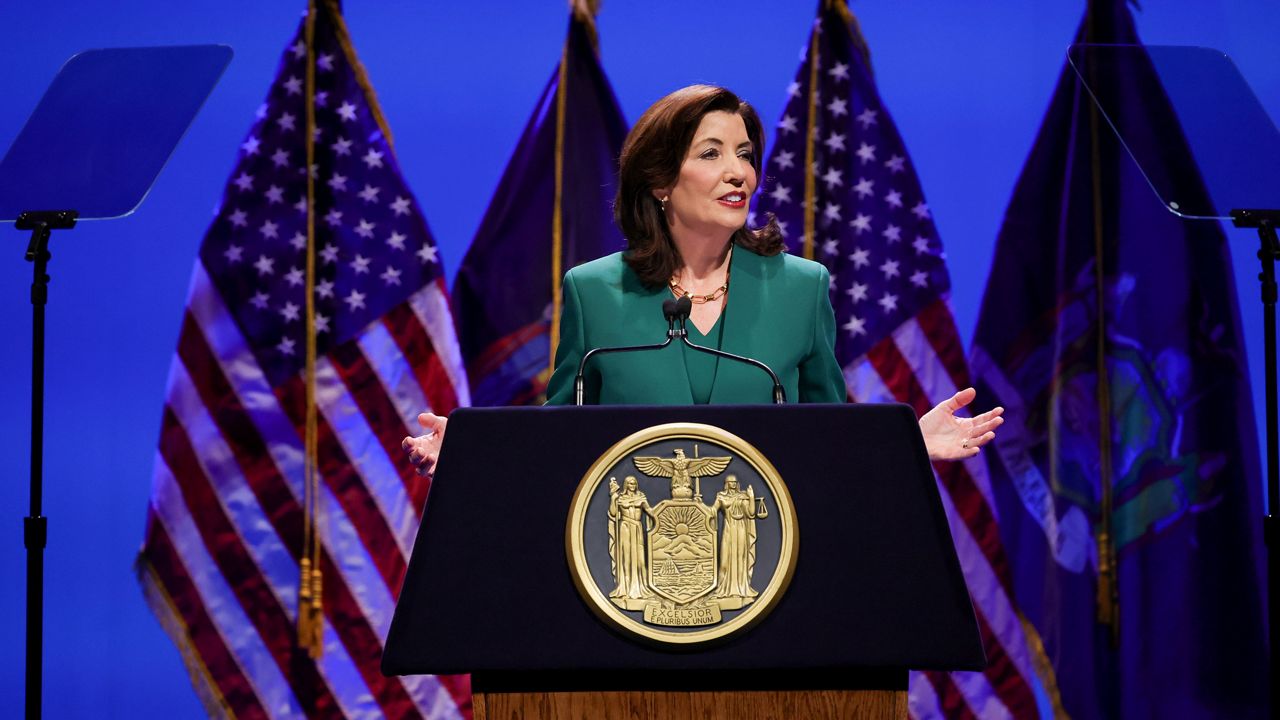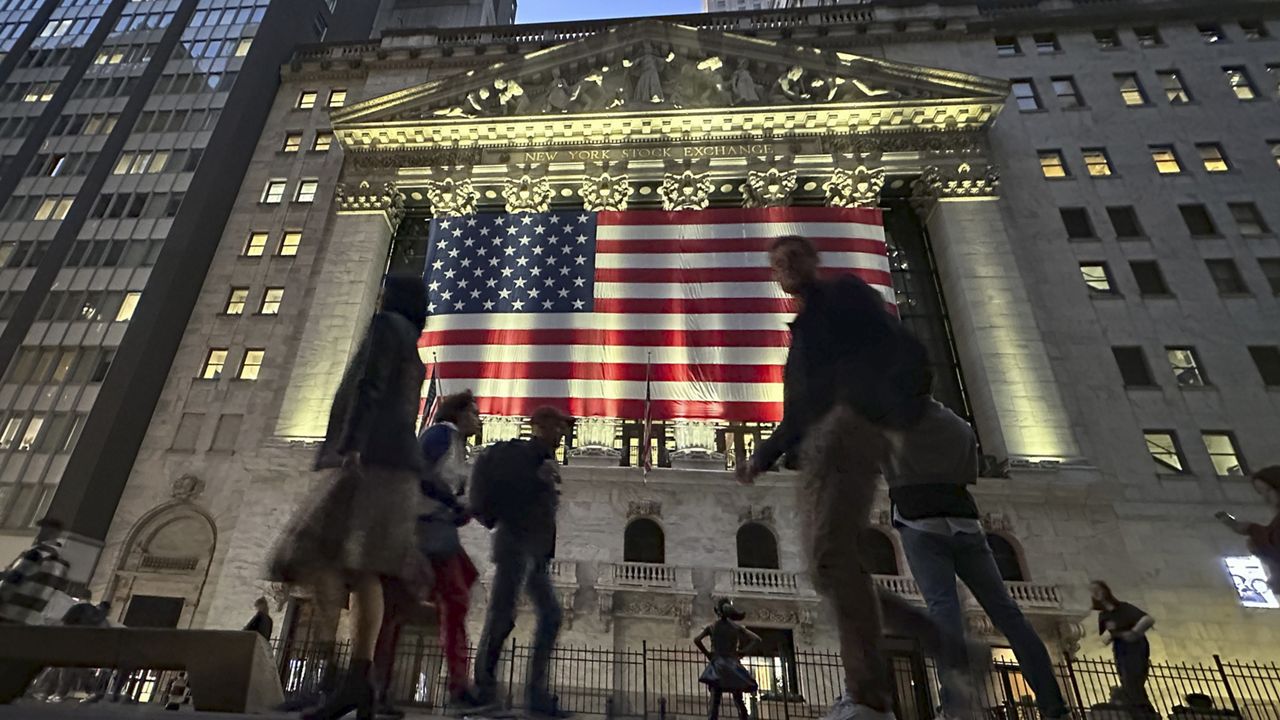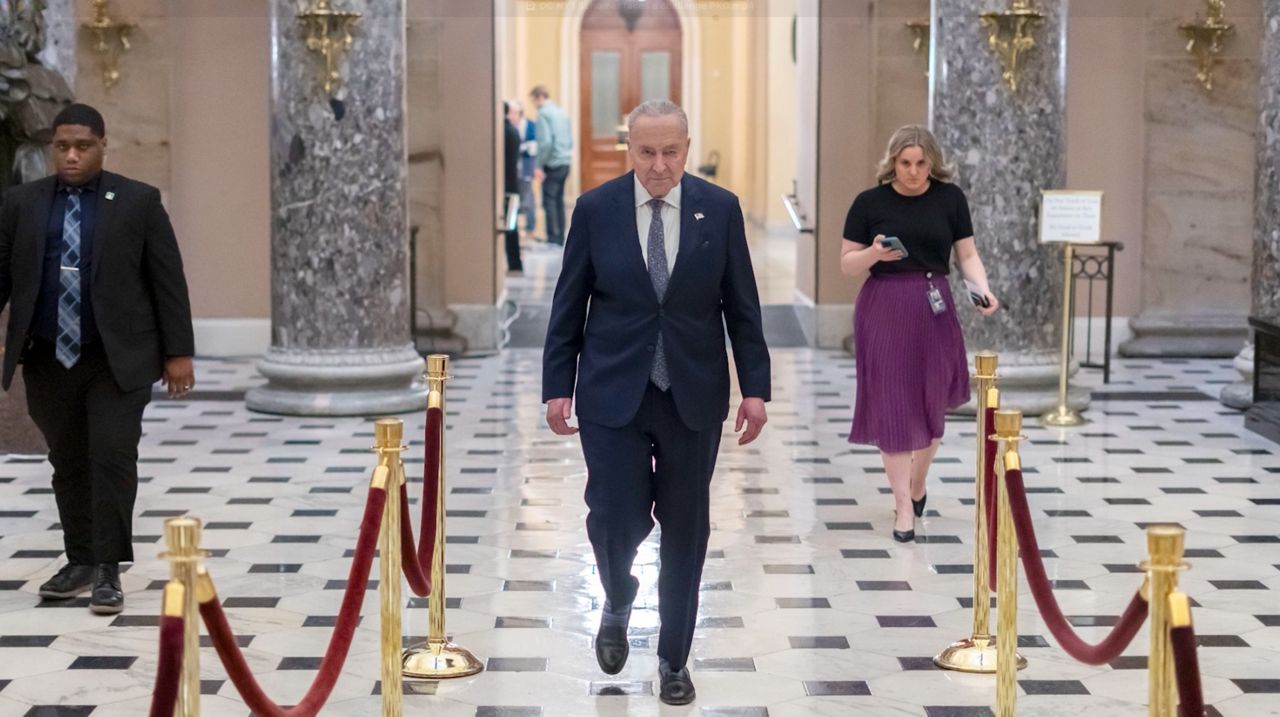Gov. Kathy Hochul signed a package of bills this week aimed at making it easier for voters to cast a ballot — some of them will take effect in time for the fall elections.
But the governor has hundreds of other bills and pending decisions on her plate this summer.
What You Need To Know
- Hochul now has to decide whether she will green light or veto upwards of 580 bills passed by the legislature between January and June of this year
- On Tuesday, she signed a package of voting bills. One measure will now let pre-registered voters — kids under the age of 18 who will turn the voting age by the time of an election — apply for an absentee or mail-in ballot
- Hochul also has to decide how she will handle the future of congestion pricing, a decision she said she will make by the next legislative cycle
“There’s an informal arrangement between the legislature and the governor, that the legislature holds bills until the governor asks for them,” Susan Lerner, director of good government group Common Cause New York, said.
One measure will now let pre-registered voters — kids under the age of 18 who will turn the voting age by the time of an election — apply for an absentee or mail-in ballot.
Those voters would be eligible for the policy by the November 5 election. Legislation sponsor Assemblyman Harvey Epstein has a personal tie to the change.
“His son was away at college and was still 17 when he was going to be 18 by election day, however the application for an absentee ballot — at that time — required you to be 18 by the time you ask,” Lerner said. “So his son was unable to get an absentee ballot.”
Another bill makes it easier for New Yorkers to correct mistakes when they vote by mail. And after January 1, the order of candidates for office will change on ballots in the state.
“In our civics classes we start at the federal level, work down to the state, we work down to the local level, that’s sort of the way in which people think about it,” Lerner said. ”So having the offices in that order makes more sense to the voters.”
Hochul now has to decide whether she will green light or veto upwards of 580 additional bills.
One targets oil companies and, if signed into law, would levy a tax on those businesses.
“It assesses the oil companies that have caused the most damage over the years, and it actually has a very specific way to determine that: how much pollution they’ve caused between 2000 and 2018. And then proportionally charge them,” bill sponsor Democratic Bronx State Assemblyman Jeffrey Dinowitz said.
Hochul has not committed to a position on the bill. Meanwhile, the governor needs to make a decision on the future of congestion pricing.
“We know that this is a temporary pause, we know that we have a timeline to really focus on this, have our plan in place, we can present it to the legislature,” Hochul told reporters Tuesday at an unrelated press conference held at her Midtown, Manhattan office.
But, according to a recent Siena College poll, almost 60% of voters think congestion pricing should be scrapped altogether — with 62% of city residents and another 68% of suburbanites agreeing.
But supporters like Andrew Rein, president of the fiscally conservative Citizens Budget Commission, argue congestion pricing should begin immediately.
“What delays do is they increase deterioration, which increase cost, which increase cost because of construction inflation,” he said. “Then what happens is your system risks quality service and what we saw two weeks ago with the transformer meltdown — we have thousands of New Yorkers. We can’t be having that. We need to invest now.”
The governor has said she will make a decision on the program by the start of the next budget cycle, set to begin in January 2025.









